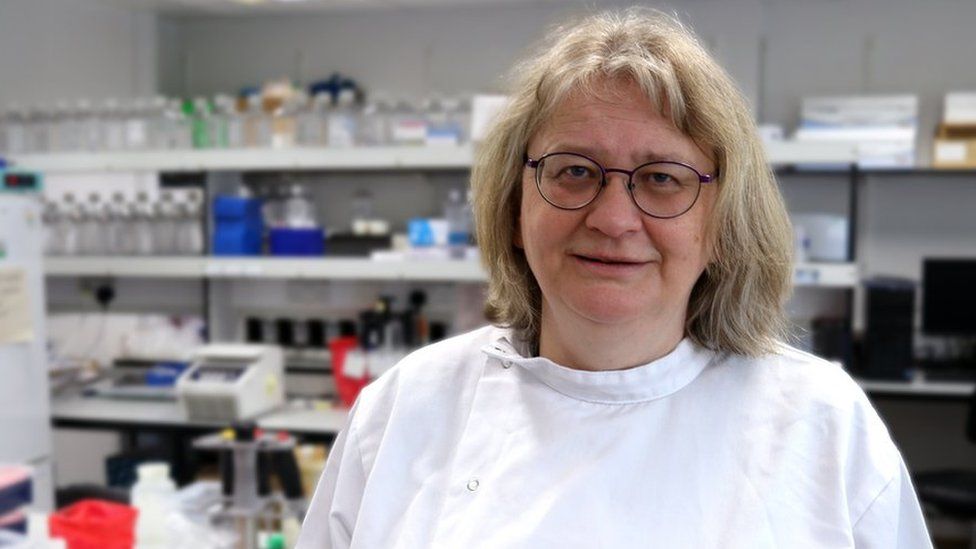ARTICLE AD BOX
 Image source, University of Aberdeen
Image source, University of Aberdeen
Prof Zosia Miedzybrodzka first began to suspect the Orkney link 25 years ago
Genetic testing has begun on the Orkney island of Westray for a gene variant linked to a higher risk of breast cancer.
A landmark study found one in 100 people with Orcadian grandparents had a specific mutation of the BRCA1 gene.
Researchers found most of them could trace their ancestry to Westray, which has a population of just 600 people.
All adults on Westray who have grandparents from the island are being offered the test for the gene variant.
There are many other BRCA gene variants which can leave women at a higher risk of ovarian and breast cancer.
But the Orkney variant BRCA1 V1736A is believed to be the first time a geographic ancestral link has been made in the UK.
Gina Rendall, operations manager at the Westray development Trust, is one of the first taking part in the testing scheme.
She said: "It is hugely important that testing is rolled out, we're just a pinpoint in the whole thing.
"Knowledge is power in this case, it's giving you information for making a proper healthcare plan for the rest of your life.
"There are a lot of anxious folk out there, if we can be preventative on this, it is going to save money and save lives."
Gina Rendall will be one of the first to take part in the scheme
The Westray Development Trust is providing £15,000 towards the testing programme.
Ms Rendall added: "When the link to the variant was discovered the news had a deep impact on our small community.
"I'm really proud to be from Westray and of the Trust's pledge to support the pilot."
Earlier this year a team of geneticists visited Westray to tell the community about the gene and the plans to offer testing and support.
Identifying the variant was the result of 25 years of research by Zosia Miedzybrodzka, professor of genetics at Aberdeen University and director of the NHS North of Scotland Genetic Service.
Image source, FrancisXT
Image caption,Researchers believes the Orkney link arose from a single founder hundreds of years ago on the isle of Westray
Prof Miedzybrodzka said: "We highlighted that this gene alteration started some 400 years ago in Westray.
"It will not have come without a price. Some people will have found that scary, daunting, maybe a bit upsetting.
"What we are offering is for people to have a test and take control of their destiny by being able to take preventative healthcare measures."
Prof Miedzybrodzka says she wants testing to be successful so it can be rolled out to others in Orkney and the rest of Scotland.
BRCA genes are present in every person, both men and women, but when a fault occurs in one of them it can result in DNA damage and lead to cells becoming cancerous.
People with a genetic variant have a 50% chance of passing it on to their children.
Awareness of the faulty gene was raised a decade ago when Hollywood actress Angelina Jolie had a double mastectomy after discovering the BRCA1 variant.
The operation was said to reduce her chances of getting breast cancer from 87% to 5%.
However, the NHS advises that risk-reducing surgery is not the only option.
It also advises awareness of changes to breasts, annual breast screenings and MRI scans can help detect breast cancer, while lifestyle changes like healthy eating and exercise can "sometimes reduce risk".
There is currently no reliable screening test for ovarian cancer, it adds.

 1 year ago
25
1 year ago
25








 English (US) ·
English (US) ·